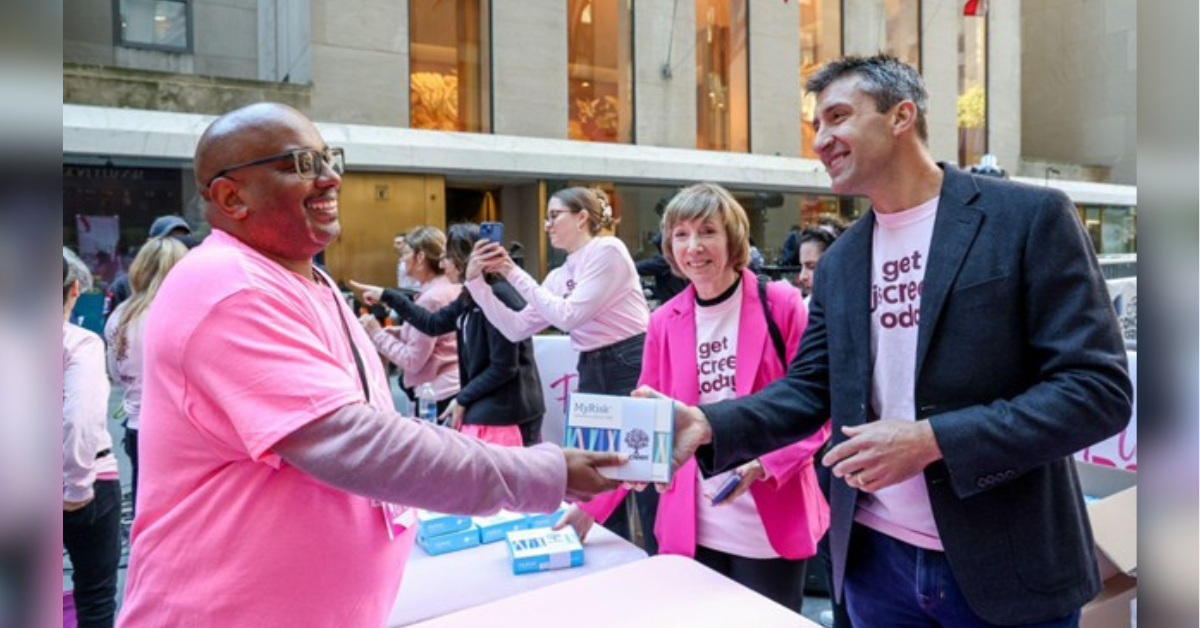Speak to Everyone: How AI Captions Help Creators Reach Global Audiences

July 25 2025, Published 2:00 a.m. ET
Picturing your video is wonderful, beautiful to look at, moving and evocative, but someone halfway around the globe scrolls by it because they can't hear the words. That's a lost connection, and for creators, every connection counts. In an age when digital borders are disappearing and audiences are more global than ever before, captioning and translating isn't a nicety, it's a necessity. Welcome CapCut App.
With its simple interface and strong editing capabilities, CapCut has emerged as a favorite tool for creators who wish to push their content beyond and make it universally accessible to everyone from all languages. Thanks to the power of an AI video maker, creators can now automatically caption, translate, and even style their videos, without exhausting hours of laborious editing.
Let's dive into how multilingual captioning is not just a checkbox, it's a game-changer for engagement, accessibility, and brand reach.
What captions actually do (besides showing text)
Captions are more than just letters on a page; they are accessibility. They are marketing tools. They drive engagement. The viewer may have their video on mute-who doesn't do that nowadays while scrolling? There are subtitles for witnesses who may not understand the language being spoken in the video or for those with hearing disabilities. Anyway, when it comes to search or algorithm rank, its job is to make content more findable. Today's creatives don't simply add captions to tick a box, they use them to create loyalty, grow their audience, and signal professionalism.
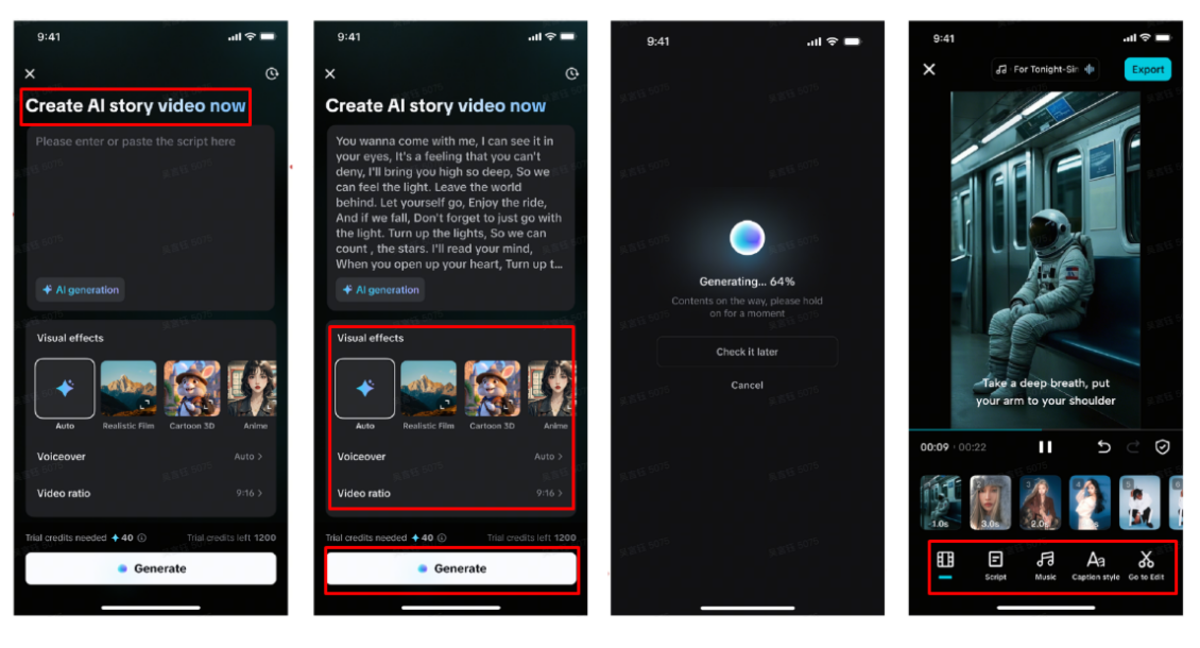
Welcome to the AI lab, where global reach gets automated
If you've ever captioned a 7-minute video by hand, you know it's no simple feat. But within tools like CapCut's AI lab, that effort has been revolutionized. The AI lab relies on algorithms trained to recognize speech, translate it into precise text, and even translate it, all in seconds. No matter if you're an English-speaking travel vlogger trying to reach Thai tourists or a tutorial teacher posting bilingual tutorials, the AI lab can do the heavy work.
It understands context, puts punctuation into it, and even gives you the ability to style captions so that they mesh nicely with your content theme. Here's how:
Step 1: Access the AI story maker
Open the CapCut App and tap the 'AI Lab' tab at the bottom menu. This area contains smart tools like 'AI story maker', 'AutoCut', and 'AI tools' designed to simplify content creation. Select 'AI story maker' and hit the 'Try now' button to begin.
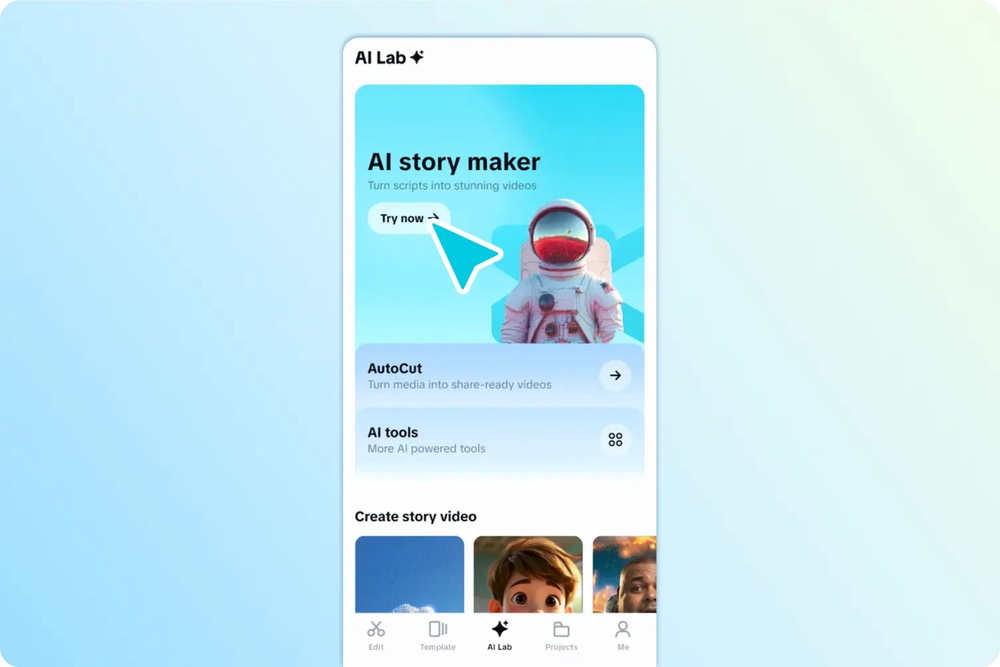
Step 2: Input and customize
Type or paste your blog summary into the 'Create AI story video now' input field. Pick a matching visual effect from styles like Realistic Film, Cartoon 3D, or Anime. Add a 'Voiceover' to narrate your summary and adjust the 'Video ratio' as needed. Tap the 'Generate' button to produce your visual blog clip.
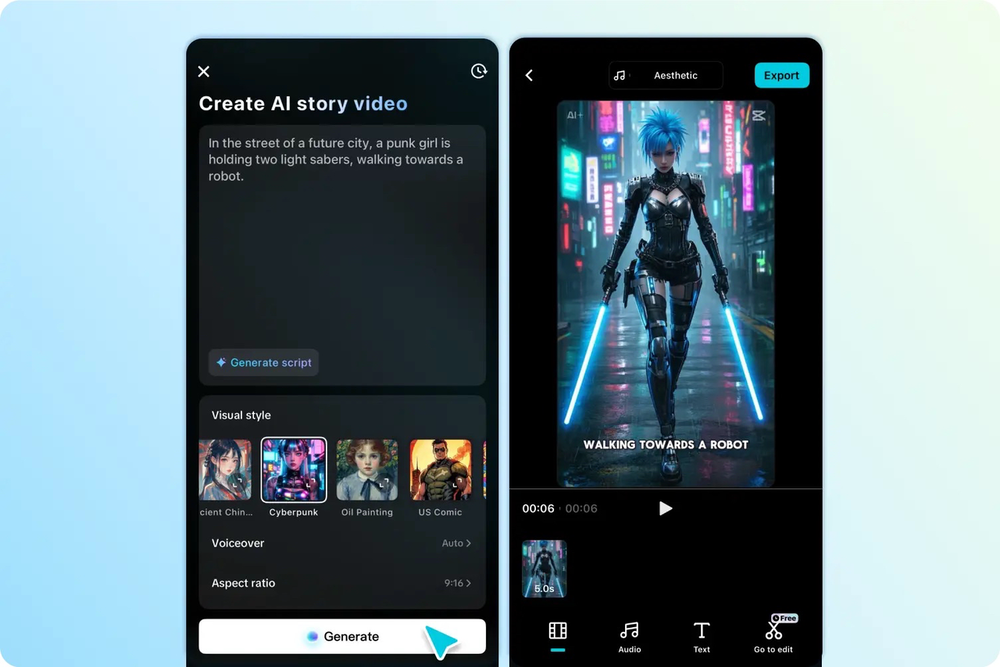
After it's generated, you can enhance it further. Add background music from the 'Music' section. Personalize your captions through 'Caption style' where you can apply animations, effects, and tweak fonts. For deeper editing, tap 'Go to Edit' to open CapCut's full editor suite.
Step 3: Export and share
Once your video is ready, hit 'Export' in the top-right corner to save it to your device. You can then post it directly to TikTok, YouTube, Facebook, Instagram, or other platforms.
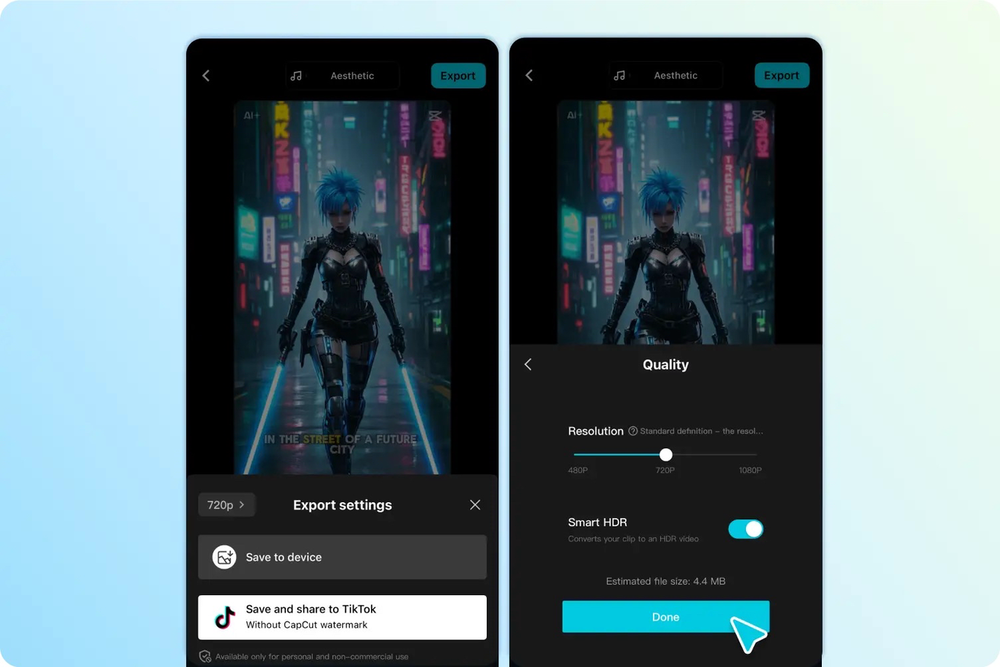
Going multilingual: why style + language combo works best
Most people confuse multilingual captions with simply translating your text. But visual harmony counts for a lot too. Font, positioning, and color influence readability and attention.
That's where style editing comes into the picture. If captions are translated but look messy or out of sync, they stick out like sore thumbs. This is the very reason creators are increasingly using AI caption generator tools, not only to generate captions but also to make them echo a brand's visual language-the way a Brazilian beauty blogger would want pastel-hued cursive captions while a Japanese tech reviewer would much rather have stark, monochrome captions.
It all depends on the audience-and, of course, the mood that the creator is trying to set.
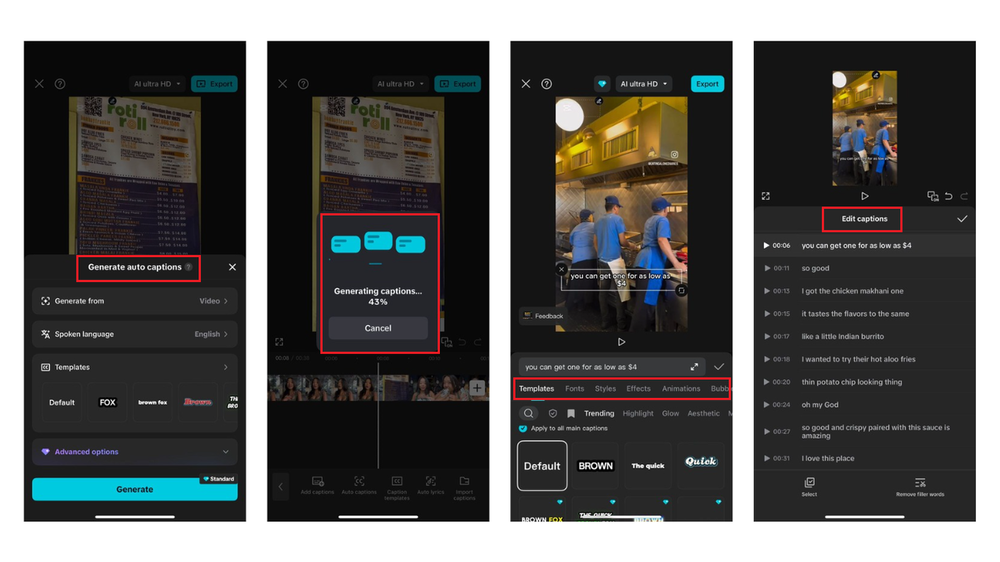
Real-time translation means real-time impact

Thanks to AI, translation is no longer a lagged process. Real-time translation and captioning enable creators to test localized content as soon as it goes live. To illustrate, you can release an English-captioned version to a Western audience while posting a Hindi-translated version at the same time to target viewers in India. This type of agility is what keeps creators competitive. And with AI evolving greater contextual understanding, the translations are becoming increasingly accurate, subtle, and brand-friendly.
The hidden bonus: algorithmic visibility
Social media and search engines find it easier to index text content compared to video in isolation. That makes your captions you create actually make your video discoverable, particularly when they're translated into high-traffic regional languages. More text = more opportunities for discovery. And when that caption text contains key terms your audience is searching for? You're not captioning anymore. You're optimizing.
Final thoughts: don't let language limit your creativity
Content creators tend to believe that captioning is a technical or mundane aspect of the task. But with software such as CapCut and its robust caption generator, it is a creative extension of your video. Style them. Translate them. Animate them. They're part of your brand voice, and they enable you to connect with viewers you never imagined you could. So next time you have a video project in the arena, don't skip captions. Embrace them-they recognize the voice of your work for you in the world. Want to speak to the world? Download the CapCut App today and give your videos a global voice.
